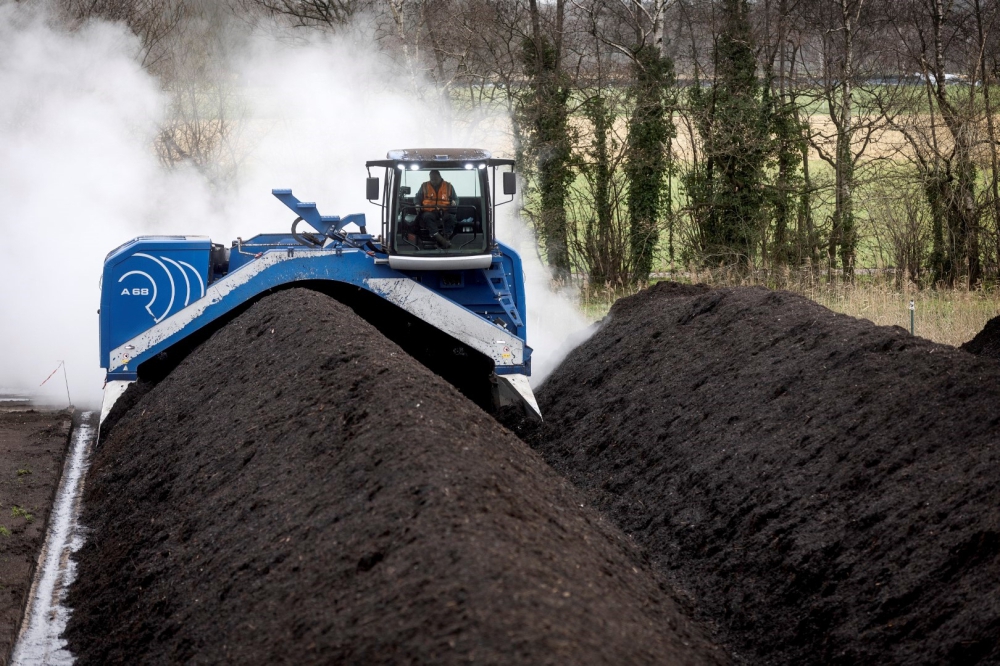- HOME >
- NEWS >
- Cultivation 24-10-2023
Klasmann-Deilmann responds to increasing demand for composted bark

Across the board, there is great attention for the sustainable use of fossil raw materials. This need is felt by end users, authorities, customers and suppliers alike. That is why Klasmann-Deilmann and their subsidiaries focus on the development of renewable raw materials. And their availability.
The call for sustainable solutions is getting louder and louder. The answer to that quest still sometimes stumbles on availability. Olde Bolhaar has anticipated this. This subsidiary of Klasmann-Deilmann processes green waste from municipalities, waste processing companies and gardeners, among others, for optimal and environmentally friendly recycling as high-quality compost in various variants. In most cases, it is plant waste from the maintenance of public green spaces, forest estates and natural areas. They also do this with composted bark for nurseries, perennials and potted plants, among others.
Capacity increased 500 per cent
Olde Bolhaar's current bark capacity of 20,000 m3 will soon be increased to 100,000 m3, partly due to a new production site. And that also calls for growth in supply. One way they are doing this is by securing bark from their own sawmills. They have also invested in a processing machine and a turning machine that ensure a uniform product.
Continuously enough of the same
The process of arriving at composted bark is entirely in-house. This includes bark supply, processing and storage. This way, they increase the supply of local and sustainable substrate raw material and the same quality of bark can be processed in Klasmann-Deilmann substrates year-round. That quality is guaranteed by the RHP certificate, thus meeting the highest standards in the substrate industry.
Leading
Klasmann-Deilmann is a leading international substrate supplier, with numerous sales and production companies in Europe, Asia and America and a network of sales and production partners on all continents.